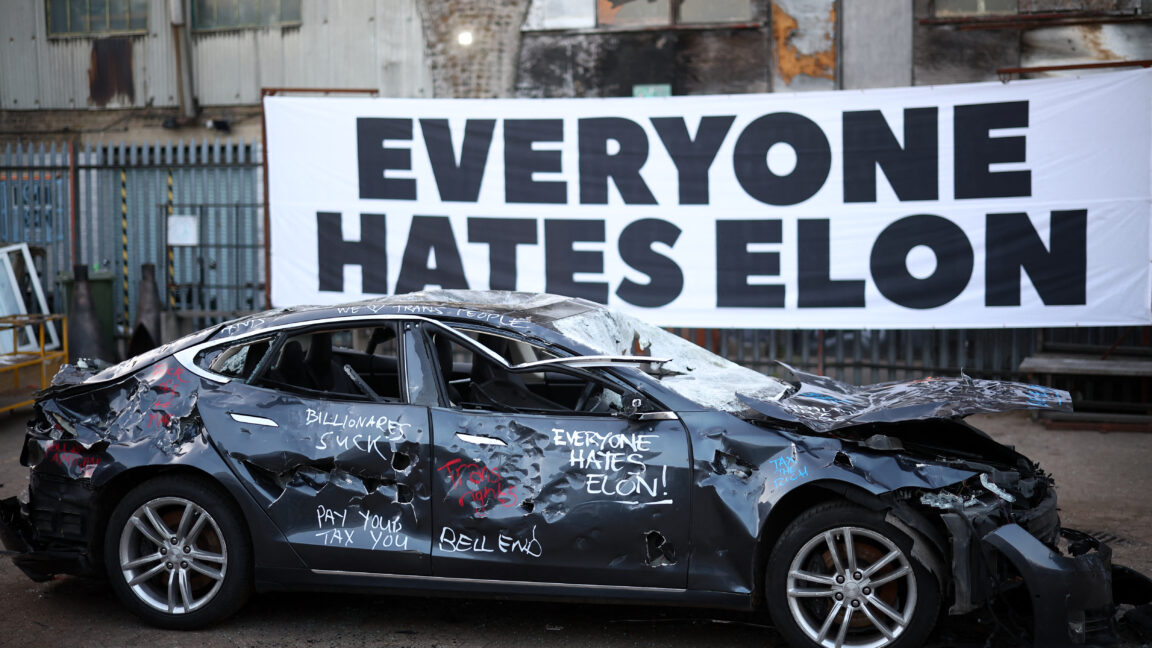
Credit: HENRY NICHOLLS/AFP via Getty Images
Tesla is in deep trouble in Europe. The electric vehicle maker, which once dominated EV sales in the region, is facing sales declines of more than 50 percent in France, the Netherlands, Sweden, Denmark, and the UK. Sales in Germany weren't quite as bad—they fell by 46 percent in April, with slightly smaller decreases in Portugal and Spain. Only Italy and Norway saw any kind of sales growth.
The headwinds were already looking unfavorable for Tesla even before CEO Elon Musk threw his lot in with Donald Trump and his authoritarian makeover of the US government. A small and outdated product portfolio was already looking stale compared to the influx of EVs from Chinese brands and European automakers, but Musk's hard-right turn and the US government's ongoing antagonism toward the rest of the world has soured the brand entirely. And a recent styling refresh for the Model Y has failed to arrest the slide.
The UK has been one of Tesla's biggest markets in Europe, and it's seeing something of an EV boom, with 8.1 percent more BEVs registered in April 2025 than the year before, even as overall car sales have dropped by 10.4 percent year on year. But Tesla's sales fell by 62 percent—the automaker registered just 512 cars all month. For context, 120,331 new cars were registered in the UK last month, of which 24,558 were BEVs.
In Germany, the overall car market fared much better, with new registrations decreasing by just 0.2 percent in April. Of those new cars, 45,535 were BEVs—a 53.5 percent increase year over year. In the context of those rising BEV sales, Tesla's 46 percent year on year decline should have alarm bells ringing. A recent survey of more than 100,000 Germans found that 94 percent said they would never purchase a Tesla thanks to Musk's support for Trump and Germany's far-right party AfD, as well the two hand gestures—which appeared to be Nazi salutes—he did on stage at Trump's inauguration.
Some other European countries are smaller markets for Tesla but have seen even more significant sales declines. In Sweden, Tesla sales dropped 81 percent. In the Netherlands, sales were down 73.8 percent. In Denmark, sales fell by 67 percent, and in France, they fell by 59 percent.
With a claimed annual capacity of 375,000 vehicles, Tesla's factory on the outskirts of Berlin seems likely to be underutilized for some time. In its Q1 financial report, Tesla said it has a global capacity of 2.35 million cars a year and sold 1.8 million cars in 2024.

-
 C114 Communication Network
C114 Communication Network -
 Communication Home
Communication Home


